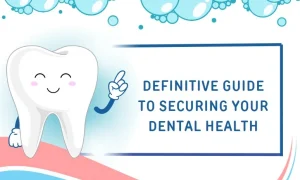Visiting the dentist to have work done on a tooth is never a fun way to spend an afternoon. If you hate going to the dentist as much as I do, then you will be ecstatic to find out about this new development which could mean the end of fillings altogether.
A drug that was previously trialed with Alzheimer’s patients has been found to repair cavities by encouraging tooth regrowth.
Early last year the researchers from King’s College London found that the drug called Tideglusib was able to stimulate the renewal of stem cells that are located in the pulp of teeth. This enabled them to generate the mineralized material under the enamel, called dentine.
A paycheck friendly treatment that can repair teeth may change the way we feel about dental care for the better. This ground-breaking technique could significantly reduce the need for fillings with cement, which get infected easily and often need to be replaced several times.
Each time a filling fails or an infection occurs the dentist must remove and then fill an area that is larger than what was initially affected. After multiple treatments, you may need to have the tooth pulled and replaced with an implant or covered with a bridge.
Now the team has discovered new developments in their research and has found that it is also able to repair teeth with non-exposed pulp, which is the more common form of cavities.
If decay or trauma damage our teeth, three layers can be affected; the outer enamel, the middle layer of dentine and the soft dental pulp that is on the inside of the tooth. The researchers had previously found that Tideglusib protected the third layer where the flesh was exposed, by stimulating the production of dentine.
In the latest study, the team has discovered that the method also works on the second layer where the pulp is not exposed, by increasing the natural secretion of reactionary dentin.
“Early in the year, we showed that we can stimulate natural tooth repair by activating resident tooth stem cells. This approach, which is simple and cost-effective, was used in teeth that had the vital layer (dental pulp) of the tooth exposed to the outer environment,” said Professor Paul Sharpe, Director of the Centre of Craniofacial & Regenerative Biology at King’s College London.
“Now we have demonstrated that this same approach can be used in situations of shallow dentine damage where differentiated cells (not stem cells) required activation. This type of damage to the tooth is the most common case that dentists see in the dental practice.”
These new findings could pave the way for revolutionary new clinical products.
“At present, there are no dental materials that act through the Wnt cascade. By showing that we can use small molecules for activation of Wnt/β-catenin signaling after shallow and deep dental injury, we open doors to have materials made that trigger the natural path of tooth repair, either in exposed dental pulp or non-exposed dental pulp.” Vitor Neves, a Ph.D. student at the Dental Institute at King’s College London says.
“The reinforced dentine would protect the dental pulp from irreversible pulpitis, meaning that minor cavities could be stopped before they turn into more serious issues, where root canals or tooth extractions are required.”
In the previous study, biodegradable collagen sponges delivered the treatment and proved that small molecule drugs could penetrate the dentine to reach the targeted cells found in the pulp. Currently, the team is working on a new delivery system because the collagen sponges aren’t likely to be suitable for clinical delivery to the affected area in this case.
These discoveries in dental care are exactly what we need, primarily since dental insurance usually only covers up to half of the total amount of costs. This total can add up quickly to be more than most of us have available to pay out of pocket.
So how do you feel about these recent discoveries? Are you as excited as I am to have a beautiful smile without having to max out a credit card? Let us know in the comments below!
Please Share with Your Friends














